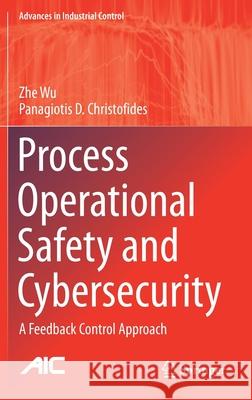Process Operational Safety and Cybersecurity: A Feedback Control Approach » książka
topmenu
Process Operational Safety and Cybersecurity: A Feedback Control Approach
ISBN-13: 9783030711825 / Angielski / Twarda / 2021 / 277 str.
Kategorie:
Kategorie BISAC:
Wydawca:
Springer
Seria wydawnicza:
Język:
Angielski
ISBN-13:
9783030711825
Rok wydania:
2021
Wydanie:
2021
Numer serii:
000000291
Ilość stron:
277
Waga:
0.60 kg
Wymiary:
23.39 x 15.6 x 1.75
Oprawa:
Twarda
Wolumenów:
01
Dodatkowe informacje:
Wydanie ilustrowane











